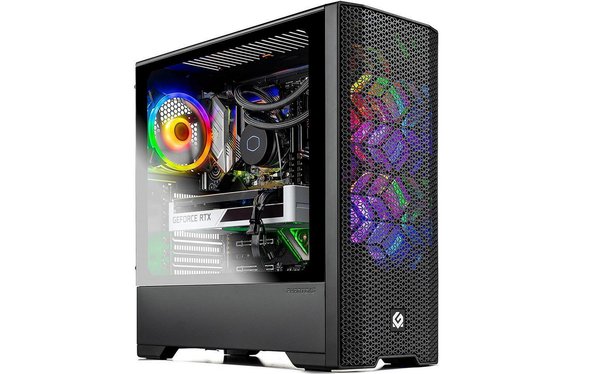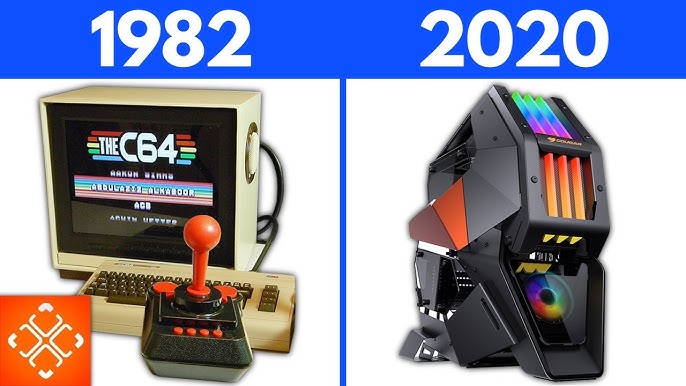Remember the days when a gaming PC was just that—a machine for playing games? Back in the early 2000s, the focus was on getting the best graphics and frame rates for the latest titles.
But today, gaming PCs are no longer just for games. They’ve evolved into powerful supercomputers capable of tasks once reserved for the most advanced workstations. This transformation is remarkable and has implications far beyond the gaming world.
In this post, we’ll explore how these PCs have reached supercomputer status, what that means, and why it matters. For more insights into the evolving world of gaming and technology, you can visit boxerjam.com.
As technology has advanced, the hardware in gaming PCs has undergone a significant transformation, shifting from basic components to cutting-edge systems capable of handling complex tasks.
Table of Contents
From Single Core to Multicore Processors
In the early 2000s, most gaming PCs had single-core processors. The focus was on clock speed—how fast a processor could perform tasks. However, as technology advanced, the emphasis shifted to multicore processors. A multi-core processor contains multiple processing units, allowing it to handle several tasks simultaneously.
Graphics Cards: The Game Changer
Graphics cards, or GPUs, have been a significant factor in the evolution of gaming PCs. Initially designed to render 3D graphics in video games, GPUs have become powerful parallel processors. The rise of GPU computing has revolutionized various fields, including artificial intelligence, data science, and cryptocurrency mining. Companies like NVIDIA and AMD have been at the forefront of this revolution, consistently pushing the boundaries of what’s possible.
Storage Solutions: Beyond Hard Drives
In the past, gaming PCs relied on hard disk drives (HDDs) for storage. These were relatively slow and prone to failure. The advent of solid-state drives (SSDs) has transformed the landscape. SSDs offer faster data access speeds, better reliability, and lower power consumption. This shift has not only improved gaming performance but also made PCs more versatile for other demanding tasks like video editing and large-scale data processing. Software innovations have played a crucial role in transforming these PCs from simple entertainment devices into versatile machines capable of handling complex tasks beyond gaming.
Operating Systems and APIs
The software running on gaming PCs has also seen significant improvements. Modern operating systems and application programming interfaces (APIs) have been optimized to take advantage of the latest hardware. For instance, DirectX 12 and Vulkan APIs provide low-level access to hardware, allowing developers to maximize performance and efficiency. This has led to more realistic graphics, smoother gameplay, and the ability to run complex simulations.
Game Engines and Beyond

Game engines like Unreal Engine and Unity have evolved into powerful platforms capable of creating not just games but also architectural visualizations, virtual reality experiences, and even cinematic productions. These engines utilize the full power of modern gaming PCs, showcasing their capabilities beyond gaming. Cloud computing has transformed the way we interact with technology, and gaming PCs are no exception.
Cloud Gaming and Beyond
The advent of cloud computing has added another dimension to these PCs. Services like NVIDIA GeForce Now, Google Stadia, and Microsoft xCloud allow users to stream games from powerful data centers. This trend shows that gaming PCs are not just standalone machines but part of a larger ecosystem that includes cloud-based supercomputing.
Distributed Computing
Gaming PCs have also become a part of distributed computing networks. Projects like Folding@home and BOINC use the idle power of millions of computers worldwide, including gaming PCs, to solve complex scientific problems. This has turned gaming rigs into a global network of mini-supercomputers contributing to scientific research.
In recent years, e-sports and streaming have dramatically reshaped the landscape of gaming, turning it into a global phenomenon that demands top-tier hardware and technical expertise.
Professional Gaming
The rise of e-sports has pushed the capabilities of gaming PCs even further. Professional gamers require the best hardware to compete at the highest levels, driving demand for cutting-edge technology. This has led to advancements in cooling solutions, high-refresh-rate monitors, and specialized peripherals.
Streaming: A New Frontier
Streaming platforms like Twitch and YouTube have turned gaming into a spectator sport. Gamers now need powerful PCs not just for playing games but also for streaming content. This requires machines capable of handling high-quality video encoding, multiple applications running simultaneously, and seamless multitasking.
As gaming PCs have grown in power and versatility, they’ve increasingly begun to overlap with traditional workstations, blurring the lines between gaming and professional use.
Workstation-Level Performance
As gaming PCs have become more powerful, they’ve started encroaching on the territory of traditional workstations. High-end gaming PCs can now handle professional-grade tasks like 3D modeling, video editing, and software development. This convergence has made them a popular choice for professionals who need a versatile machine for both work and play.
Virtual Reality and Augmented Reality
The growing interest in virtual reality (VR) and augmented reality (AR) has also driven the evolution of these PCs. These technologies require immense computational power to render immersive experiences in real time. Gaming PCs equipped with powerful GPUs and high-resolution displays are perfectly suited for VR and AR applications, making them indispensable tools for developers and content creators.
Quantum Computing: The Next Frontier?
While we’re not quite there yet, the future may see quantum computing integrated into gaming PCs. Quantum computers can solve certain problems exponentially faster than classical computers, potentially revolutionizing gaming and other computational tasks. Companies like IBM and Google are already working on quantum computing, and it’s only a matter of time before this technology trickles down to consumer hardware.
AI and Machine Learning
Artificial intelligence and machine learning are increasingly becoming integral parts of gaming. From smarter NPCs to procedural content generation, AI can enhance the gaming experience in numerous ways. Gaming PCs, with their powerful GPUs, are well-suited for training and running AI models, making them essential tools for developers exploring these technologies.
The Bottom Line
Gaming PCs have come a long way from their humble beginnings in the early 2000s. They’ve evolved into powerful machines capable of much more than gaming, serving as workstations, streaming platforms, and even supercomputers. This transformation has been driven by advances in hardware, software, and emerging technologies like cloud computing and AI.
